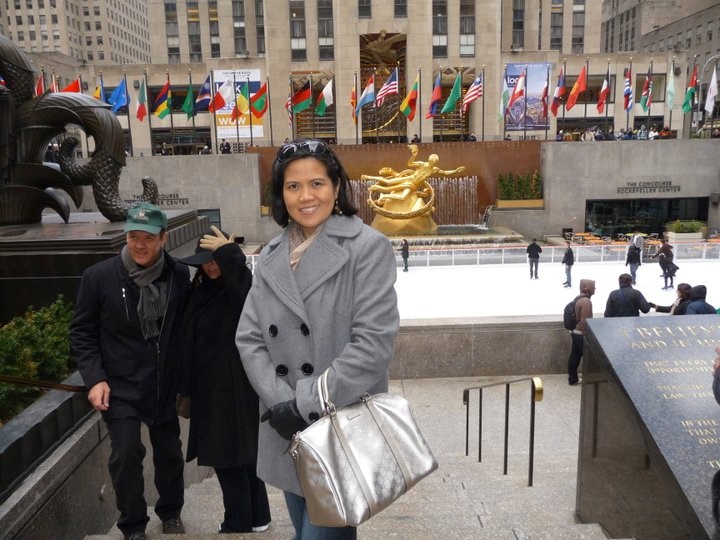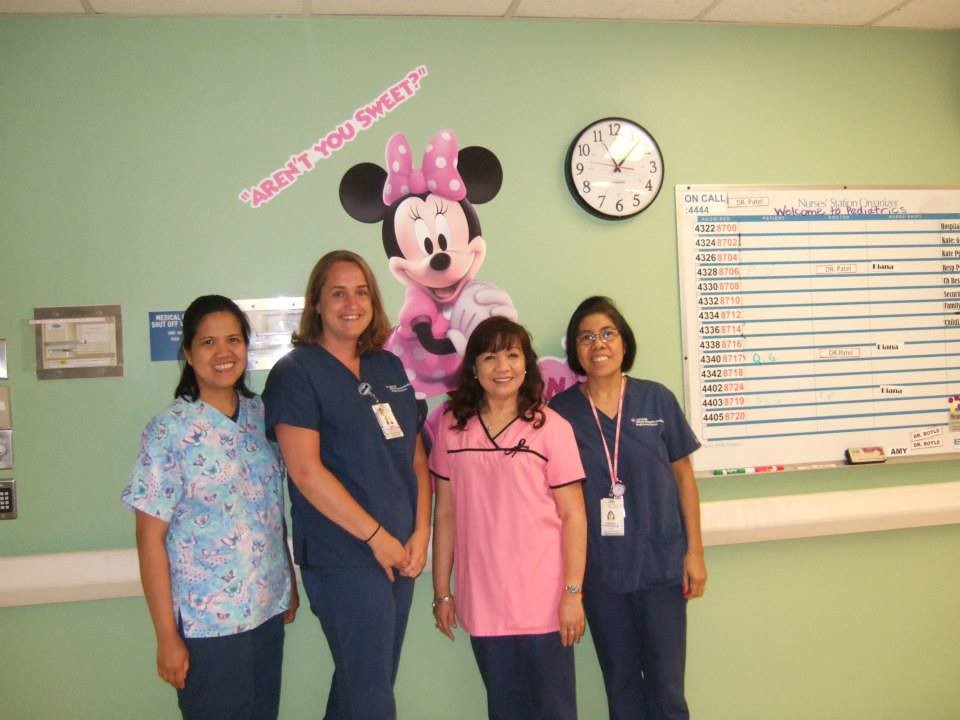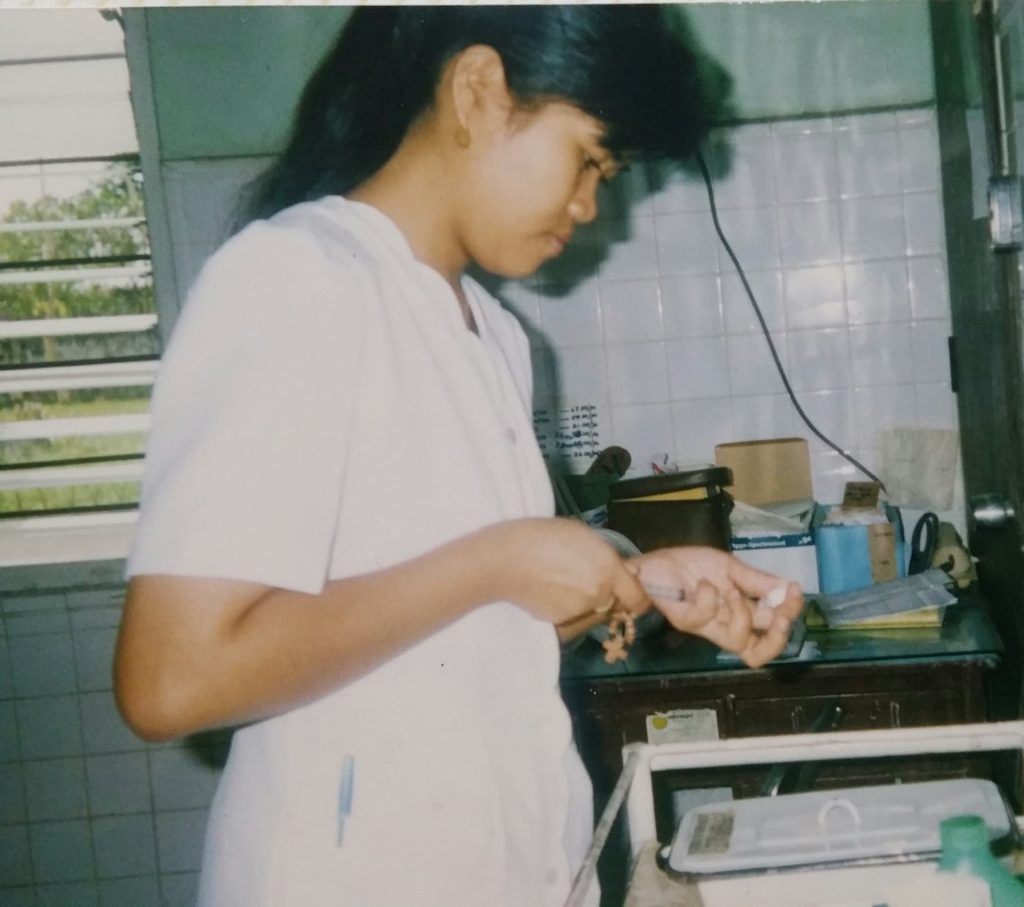The Graduate School has selected Grace Reyes as its November GradBird Scholar recipient. GradBird Scholar is an initiative to recognize graduate students for their scholarly endeavors at Illinois State University.
Currently in her 30th year as a nurse, Reyes graduated from St. Paul University Iloilo in the Philippines as a proud member of the Fidelis Christ Mariae class of 1993. She started her nursing career as an homage to her parents and is embarking on a journey to complete her Doctor of Nursing Practice to honor them to this day.
Reyes’ current role in nursing informatics stemmed from her passion for merging technology and efficient workflows to improve the quality of care nurses provide for their patients. When she’s not busy with school and work, she loves to travel domestically and internationally with her husband, Ranie. They are always exploring nature, historical sites, and local cuisines. In addition, they are fur parents to a loving, gentle Great Pyrenees named Mico.
What is your favorite part of your program?
I love exchanging ideas with my classmates and professors. The different perspectives I get from them through those engaging discussions in various classes help me grow professionally and personally. I apply the lessons I learn in my day-to-day role as a clinical informatics consultant.
Do you work with a specific faculty/staff member to help with your research? What has your experience been like working with them?
Although I am just in the preliminary stages of my proposed project, Dr. Carla Pohl has helped me refine my practice and PICOT questions. She has given me thought-provoking feedback in identifying the focus of my study, choosing relevant literature, and putting my diverse ideas together into one cohesive, purposeful study proposal. Dr. Pohl is always willing to give me insightful ideas and constructive criticisms. I appreciate that she is very flexible and accommodating in answering my seemingly trivial questions; some may even have been irrelevant to my proposed project.






Can you explain your research & the importance of it within your field?
Sepsis is a life-threatening emergency that afflicts millions of people around the world yearly. It occurs when the body’s defenses are unable to fight off the progressing infection, leading to multi-organ dysfunction and other adverse effects, including death. Studies show that one of every three deaths in hospitals today is caused by sepsis. Those who had severe cases had higher chances of getting readmitted. My proposed project aims to reduce the number of people getting readmitted from sepsis.
Sepsis does not only occur among patients admitted to the hospital. There are many cases of undiagnosed sepsis in the community. The majority of those are people from minority racial/ethnic origins, belong to lower socioeconomic status and often lack access to health care. The same group also tends to present to clinicians late, with worse symptoms and a higher possibility of readmission or death.
For this reason, I have started identifying stakeholders from within my health care organization and community partners to streamline the discharge planning and transition to home process to help reduce the number of sepsis readmissions. We all agree that healthier communities mean better patient outcomes and less cumulative costs to the patients, health care organizations, and society.
Why do you enjoy researching this topic and what more do you hope to learn about it?
Sepsis does not discriminate. I have seen it cause intensive care unit admissions among my nursing home residents and neonatal deaths in the NICU. Although these facts may sound morbid to some, they inspire me to want to know more about how we can best manage it and prevent long-lasting adverse effects or deaths.
Since my background is in inpatient nursing, I hope to learn more about the community programs that are available to enhance care and minimize sepsis-related admissions. Knowing my stakeholders and the respective work that they do for the patients we take care of, I have a renewed appreciation of the fact that health care is indeed a “team sport.”
I also hope to leverage using technology in taking care of these vulnerable populations within the community. However, cliche as it may sound, it will take a village to make that happen. For example, how can I advocate for patients who lack transportation to visit their primary care provider via telehealth if they don’t have cell phones or mobile devices, access to the internet, or the money to pay for those services?
What do you hope further research about this topic will do to benefit the greater of society?
While my proposed project is sepsis-centered, the bigger goal is to streamline the transition of care from hospital discharge to self-care or supported care at home. I believe that successfully implementing this cohesive transition process will lessen not only the readmissions among sepsis patients, but it will also apply to patients diagnosed with other diseases. If patients know the available community resources, regardless of their status in life, they will not hesitate to seek help promptly. Preventive care is best, followed by early diagnosis and treatment.
Would you like to highlight anything else about your research or promote anything specific you are involved in?
I am very grateful to all my stakeholders for expressing their willingness and enthusiasm to partner with me, not only to meet my academic requirements but, more importantly, to make a difference in our patients’ lives. Doing this research project affirmed that my parents dreamt of the right professional path for me to pursue. I hope I am continuing to make them proud.

